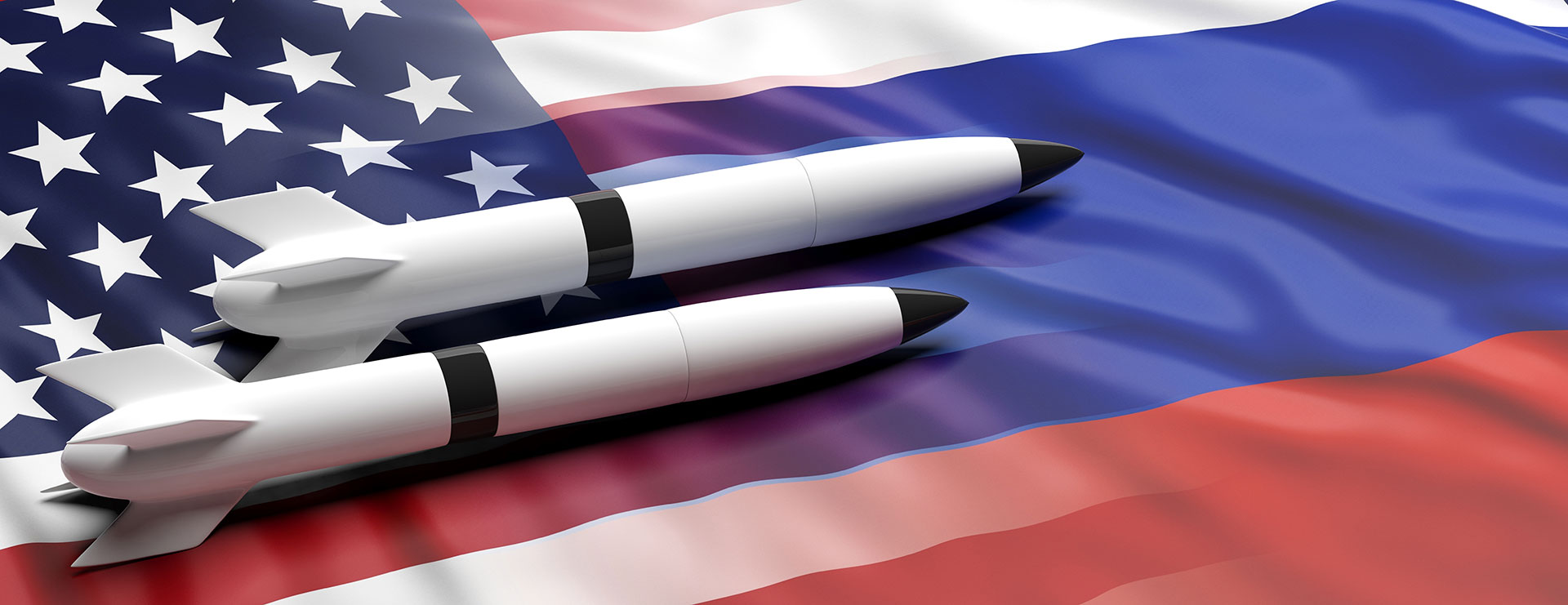The English translations of Russian President Vladimir Putin’s speeches on the Kremlin website make for compelling reading. One wonders how much more strident Putin’s speeches sound in Russian. On February 21, Putin gave a presidential address to the Russian Federal Assembly in which he argued that “modern Ukraine was entirely created by Russia or, to be more precise, by Bolshevik, Communist Russia.” He took the view that the embalmed and much-revered Soviet leader Vladimir Ilyich Ulyanov, better known as Lenin, made a historic blunder by arbitrarily giving away historic Russian land to Ukraine.
Putin’s February speech echoed his earlier speeches. It is part of a narrative he has crafted over the years and the long game he is playing. Putin’s article on the Kremlin website dated July 12, 2021 covers much of the same ground. Both reveal the depth of Russian resentment and the strength of Putin’s paranoia.
In February, the Russian president yet again complained about “NATO’s expansion to our borders” and hundreds of American military bases around the world. He accused the US-led West of seeking “unlimited power,” and, as per American experts, killing “almost 900,000 people” and creating 38 million refugees since 2001.
Putin claimed that Western elites have embarked on an “anti-Russia project” and have “already spent over $150 billion on helping and arming the Kiev regime.” In contrast, the G7 countries have “earmarked about $60 billion in 2020–2021 to help the world’s poorest countries.” The Russian strongman accused the West of being warmongering, hypocritical and hegemonic. According to Putin, Western elites care about domination, not poverty alleviation, sustainable development or environmental protection. He claimed that the “West is using Ukraine as a battering ram against Russia and as a testing range” because Moscow is too proud to kowtow to Washington.
Ominously, Putin announced in his speech that “Russia [was] suspending its membership in the New START Treaty” that aims at reducing nuclear warheads and the missiles and bombers capable of delivering them.
What is the New START Treaty?
The US State Department tells us that the New START Treaty is the “Treaty between the United States of America and the Russian Federation on Measures for the Further Reduction and Limitation of Strategic Offensive Arms.” It came “into force on February 5, 2011,” and both parties had “agreed to extend the treaty through February 4, 2026.”
This treaty placed “verifiable limits on all Russian deployed intercontinental-range nuclear weapons.” The New START Treaty also set limits for nuclear weapons, which are as follows:
- 700 deployed intercontinental ballistic missiles (ICBMs), deployed submarine-launched ballistic missiles (SLBMs), and deployed heavy bombers equipped for nuclear armaments;
- 1,550 nuclear warheads on deployed ICBMs, deployed SLBMs, and deployed heavy bombers equipped for nuclear armaments (each such heavy bomber is counted as one warhead toward this limit);
- 800 deployed and non-deployed ICBM launchers, SLBM launchers, and heavy bombers equipped for nuclear armaments.
It is important to note that START negotiations began in 1982 and continued for decades. The START I Treaty was signed by George H.W. Bush and Mikhail Gorbachev on July 31, 1991. The Soviet Union collapsed by the end of that year but START I survived. Russia under Boris Yeltsin continued to adhere to it. When Dmitry Medvedev was president, Russia signed the New START Treaty that has persisted since.
To be clear, Russia has not withdrawn from the New START Treaty. In Putin’s words, Russia is “suspending [its] participation.” He has put a precondition to returning to “discussing this issue” — the nuclear arsenals of NATO powers, France and the UK are now on the table. Simply put, this treaty is on hold: Russia could reinstate it speedily unlike the Anti-Ballistic Missile (ABM) Treaty, which stands abandoned and would have to be renegotiated. Even suspension of the New START is dangerous and has upped the ante in what the US Army War College first called a volatile, uncertain, complex and ambiguous (VUCA) world.
Putin claims that the times have changed radically since 1991 when Bush Senior and Gorbachev signed the first START agreement. He referred to George W. Bush’s withdrawal from the ABM Treaty as proof of American perfidy. In return for Russian support for the US after the 9/11 attacks, Moscow got stabbed in the back by Washington. The Russian president is not alone in remembering this US decision. In December 2021, James M. Acton of the Carnegie Endowment for International Peace called Bush Junior’s decision to withdraw from the ABM Treaty “an epic mistake.” Other analysts, especially from the so-called Global South, remember this withdrawal vividly. Acton rightly argued that Bush Junior’s unilateral action “fueled a new arms race.” Putin’s decision might have just poured oil and blown gas on that race.
Why Putin’s decision matters
In the Cold War, many people around the world feared a nuclear war. A key fact sheet by the Union of Concerned Scientists tells us that there have been a number of “close calls with nuclear weapons.” In the 1950s and 1960s, both the US and the Soviet Union kept bombers armed with nuclear weapons on “airborne alert.” To mitigate risks of an accidental nuclear war, the Soviet Union and the US began Strategic Arms Limitation Talks of the 1970s. Eventually, they led to START and the New START Treaty.
In recent years, geopolitical temperatures have been rising. The Russia-Ukraine War has not only brought back large-scale conflict to Europe after World War II but also heightened the risk of the use of nuclear weapons. Everyone assumes that nuclear war is far too destructive and no one could reasonably countenance it. Yet the fact sheet tells us that we came close to war on numerous occasions.
Three examples are noteworthy. On October 5, 1960, the US early warning system at Thule, Greenland detected that dozens of Soviet missiles had been launched against the US. Luckily, Nikita Kruschev was visiting New York at that time. So, Americans decided that must have been a false alarm. Indeed, it was. It turns out that “the radar had been fooled by moonrise over Norway.” Another false alarm “happened during the Cuban Missile Crisis” on October 28, 1962.
A third false alarm occurred on September 26, 1983 when an early warning satellite detected that five US missiles had been launched at the Soviet Union. This was a time of high US-Soviet tensions. Earlier in the month, the Soviets had shot down a Korean Airlines plane that had strayed into their airspace, killing almost 300 people. The officer on duty believed this was a false alarm and took the bold decision of not following the set procedures, averting nuclear war. We now know that the satellite had been fooled by the sun’s reflection on the top of the clouds. With heightened tensions today, no officer on duty, American or Russia, would dare to overrule any warning system. Human errors, technical problems and procedural mistakes have occurred in the past. There is no reason to assume that these could not happen again. The end of the New START Treaty has ratcheted up tensions in our VUCA world. Putin does not really have to press the nuclear button or use tactical nuclear weapons for matters to get out of hand. Any false alarm could set off an accidental nuclear war.
The views expressed in this article are the author’s own and do not necessarily reflect Fair Observer’s editorial policy.
Support Fair Observer
We rely on your support for our independence, diversity and quality.
For more than 10 years, Fair Observer has been free, fair and independent. No billionaire owns us, no advertisers control us. We are a reader-supported nonprofit. Unlike many other publications, we keep our content free for readers regardless of where they live or whether they can afford to pay. We have no paywalls and no ads.
In the post-truth era of fake news, echo chambers and filter bubbles, we publish a plurality of perspectives from around the world. Anyone can publish with us, but everyone goes through a rigorous editorial process. So, you get fact-checked, well-reasoned content instead of noise.
We publish 2,500+ voices from 90+ countries. We also conduct education and training programs
on subjects ranging from digital media and journalism to writing and critical thinking. This
doesn’t come cheap. Servers, editors, trainers and web developers cost
money.
Please consider supporting us on a regular basis as a recurring donor or a
sustaining member.
Will you support FO’s journalism?
We rely on your support for our independence, diversity and quality.







Comment